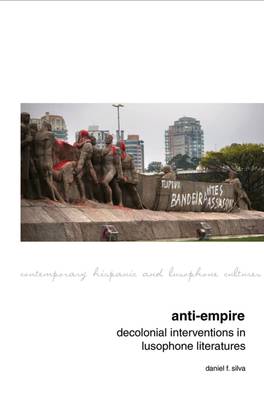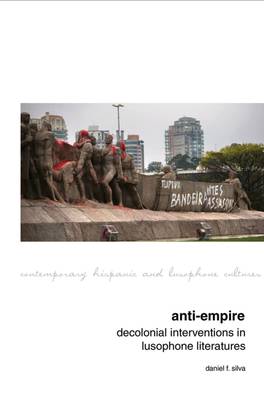
- Afhalen na 1 uur in een winkel met voorraad
- Gratis thuislevering in België vanaf € 30
- Ruim aanbod met 7 miljoen producten
- Afhalen na 1 uur in een winkel met voorraad
- Gratis thuislevering in België vanaf € 30
- Ruim aanbod met 7 miljoen producten
Anti-Empire: Decolonial Interventions in Lusophone Literatures
Daniel F SilvaOmschrijving
An Open Access edition of this book is available on the Liverpool University Press website and through Knowledge Unlatched.
Anti-Empire explores how different writers across Lusophone spaces have engaged with imperial and colonial power at its various levels of domination, while imagining alternatives to dominant discourses pertaining to race, ethnicity, culture, gender, sexuality, and class. Guided by a theoretically eclectic approach ranging from Psychoanalysis, Deconstruction, Postcolonial Theory, Queer Theory, and Critical Race Studies, Empire is explored as a spectrum of contemporary global power inaugurated by European expansion and propagated in the postcolonial present through economic, cultural, and political forces. Through the texts analysed, Anti-Empire offers in-depth interrogations of contemporary power in terms of racial politics, gender performance, socio-economic divisions, political structures, and the intersections of these facets of domination and hegemony. By way of grappling with Empire's discursive field and charting new modes of producing meaning in opposition to that of Empire, the texts read from Brazil, Cabo Verde, East Timor, Portugal, and São Tomé and Príncipe open new inquiries for Postcolonial and Decolonial Studies while contributing theoretical debates to the study of Lusophone cultures.
Specificaties
Betrokkenen
- Auteur(s):
- Uitgeverij:
Inhoud
- Aantal bladzijden:
- 336
- Taal:
- Engels
- Reeks:
- Reeksnummer:
- nr. 18
Eigenschappen
- Productcode (EAN):
- 9781800855908
- Verschijningsdatum:
- 1/09/2021
- Uitvoering:
- Paperback
- Formaat:
- Trade paperback (VS)
- Afmetingen:
- 156 mm x 233 mm
- Gewicht:
- 553 g

Alleen bij Standaard Boekhandel
Beoordelingen
We publiceren alleen reviews die voldoen aan de voorwaarden voor reviews. Bekijk onze voorwaarden voor reviews.











